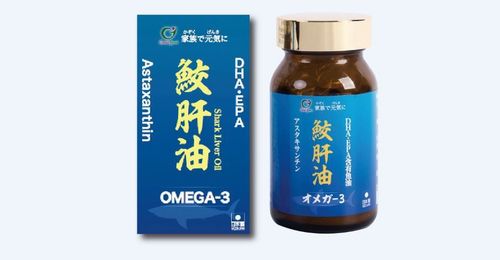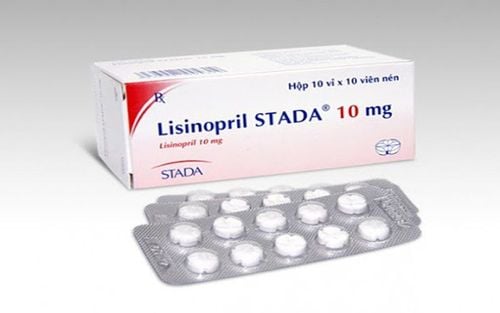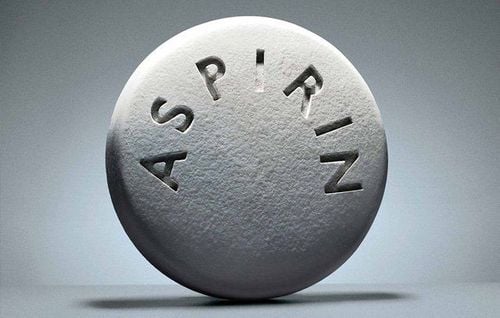This is an automatically translated article.
The article is professionally consulted by Master, Doctor Cao Thanh Tam - Cardiologist - Cardiovascular Center - Vinmec Central Park International General Hospital. Master - Doctor Cao Thanh Tam has many years of experience in the diagnosis and treatment of cardiovascular diseasesOver the past 10 years, many Americans have turned to omega-3 fish oil supplements because of its benefits to both healthy people and people with heart disease. Fish oil is rich in omega-3s including docosahexaenoic acid (DHA) and eicosapentaenoic acid (EPA). Omega-3 fatty acids are essential nutrients that are important in preventing and managing heart disease.
1. What does Omega-3 fish oil do?
Some studies show that Omega-3 fish oil offers a number of benefits such as:Lowering blood pressure. Reduce triglycerides. Slows the growth of plaque in the coronary arteries. Reduces the possibility of abnormal heart rhythms. Reduce the chance of heart attack and stroke. Reduces the risk of sudden cardiac death in people with heart disease. The American Heart Association (AHA) recommends that everyone eat fish (especially fatty, cold-water fish) at least twice a week. Salmon, mackerel, herring, sardines, lake trout, and tuna are especially high in omega-3 fatty acids.
You can get omega-3 from food sources every day but for those on a diet who can take fish oil supplements available, this is also the optimal choice for those who do not like to eat fish or allergic to fish.
The health benefits of taking fish oil supplements regularly are unclear, so consult with your doctor to see if fish oil is right for you. If you have heart disease or have high triglyceride levels, you may need even more omega-3 fatty acids. Consult your doctor if you want to take a higher dose of fish oil supplements to get the omega-3s your body needs.

2. Benefits of Omega-3 fish oil for people with cardiovascular disease
Many research results show that Omega-3 fatty acids can support a lot of health in protecting the cardiovascular system such as lowering blood pressure, slowing down the process of plaque formation in blood vessels, reducing blood pressure and reducing blood pressure. the risk of arrhythmia, stroke or sudden cardiac death in people with heart disease...Omega-3s can lower levels of triglycerides, a bad blood fat, and increase HDL, a type of blood fat. good for the body. Omega-3 can also reduce platelet adhesion and prevent coronary thrombosis, reducing the risk of arrhythmia; while enhancing arterial tone, reducing the likelihood of atherosclerosis, and reducing inflammatory factors.
Taking fish oil supplements containing omega-3s studied in people with coronary artery disease has been shown to reduce the risk of death, stroke, and heart attack by 15%. The results also showed a 20% reduction in the risk of death from any cause and a 45% reduction in sudden cardiac death when compared with patients who did not take the drug.
Omega-3 fish oil supplements provided the following benefits for people with cardiovascular disease:
Cardiac arrhythmias : In 49 patients randomized to fish oil or olive oil, follow-up records Holter showed an increase in heart rate variability in the fish oil group. In a larger cohort evaluated in the Japanese EPA Lipid Intervention Study (JELIS), the difference in heart rate variability could be attributed to fish oil.
Although there are no randomized data on fish oil consumption and protection from sudden death, observational studies have linked omega-3 fatty acids with preventing sudden death.
Coronary artery disease: The DART study, published in 1989, was the first randomized trial to show the effectiveness of fish oil in patients with heart disease.
In the trial, 2033 post-coronary artery bypass surgery patients were randomized to follow 3 types of diets: a high-fiber diet, a high-polyunsaturated fat diet, and a high-fiber diet. lots of fish oil. The fish oil supplement group consumed 200-400g/week of fatty fish (2 servings of fish per week) or 0.5g/day of Maxepa fish oil. After 2 years, mortality was reduced by 29% in the fish oil supplement group, while there was no improvement in the remaining dietary groups.
Heart failure:

According to the American Heart Association, people with cardiovascular disease should get about 1 gram of EPA and DHA per day. Mackerel, salmon, sardines, herring, and tuna are rich sources of Omega-3, which can be eaten at least twice a week.
If you have cardiovascular disease then you can take a high dose Omega-3 fish oil supplement. However, the use of Omega-3 fish oil requires consultation with a doctor.
Please dial HOTLINE for more information or register for an appointment HERE. Download MyVinmec app to make appointments faster and to manage your bookings easily.
Reference source: webmd.com; harvard.edu; NCBI













